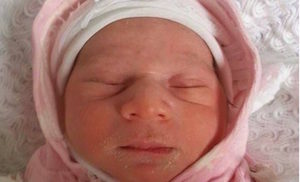Election protesters on wrong side of reality
If you are like me, there’s relief that the election is over, if only for the lack of television commercials or robo calls. For some there was jubilation Wednesday morning, Nov. 9, as the news networks called it for Trump. For others there was sadness and trepidation. Trepidation that continues on the streets as young election protesters fight the outcome of a time-tested democratic process.
A lot of the focus seems to be on America’s college campuses where “snowflakes” (a term describing young people who, for the first time in their lives, didn’t get their way and can’t cope) are being offered “crying rooms”, counseling or comfort dogs as was the case at the University of Kansas in Lawrence. Other universities cancelled classes and provided rooms where college students could play with children’s building blocks or fill in coloring books featuring Barney, My Little Pony and other comforting images from their childhood.
But the response of many of these spoiled, self-centered offspring is in contrast to their contemporaries in other parts of the world–areas of our globe where tears are shed by young people not for an election loss but for the loss of family members at the hands of ISIS, hunger, disease or bombs raining from the sky.
For me that’s what is most embarrassing about this election. While the media tells us a world of “haves” is aghast at a Trump victory, I see a world of suffering masses, the “have-nots”, looking with confusion as entitled and naive American protesters riot only to return to homes that are NOT burned-out, with Chipotle carry-out in hand, to lay in a warm bed for an evening of Netflix binging.
Yeah, these American youth have it so bad.
So how has the election result been received in some of these areas that many college students cannot find on a map?
The New York Times reports that Iraqis, who endured years of Islam being used to justify mass killing, publicly voiced optimism in “Mr. Trump as a truth-teller in calling out Islam — or a certain brand of it — as the problem.”
The Times shares how Iraqi Shiites believe Trump will take a harder line on Saudi Arabia, which is seen as fomenting an extreme form of Islam–Wahhabism.
“The victory of Trump is the beginning of the end of extremist Islam and Wahhabism,” said Mouwafak al-Rubaie, an Iraqi lawmaker and the country’s former national security adviser.
“We have no concerns about the policy of Trump because he is against extremism,” said Saad al-Hadithi, the spokesman for Prime Minister Haider al-Abadi of Iraq. “We think we are facing one enemy, and that is fighting ISIS. Therefore, I do not think there are fears or concerns about a new American policy.”
Mr. Abadi made it a point to call President-elect Trump and affirmed their cooperation against the Islamic State.
Then there are the regular folks on the front line and pay with their lives.
 According to the Haym Salomon Center, a Yazidi couple in Iraq whose family suffered at the hands of the Islamic State named their newborn child “Trump” within minutes after Republican nominee became the U.S. President-elect. The new mother was reportedly in labor as the U.S. presidential election vote count rolled in. An hour before Trump officially won, she gave birth to a baby boy.
According to the Haym Salomon Center, a Yazidi couple in Iraq whose family suffered at the hands of the Islamic State named their newborn child “Trump” within minutes after Republican nominee became the U.S. President-elect. The new mother was reportedly in labor as the U.S. presidential election vote count rolled in. An hour before Trump officially won, she gave birth to a baby boy.
“We have been going through a never-ending genocide over the last two years at the hands of ISIS, and Obama failed to take out ISIS or help liberate the thousands of Yazidi women and children that are still enslaved by ISIS,” said the father of the new baby boy Trump. “I hope President Trump will at last take out ISIS so we can return home and rebuild our lives.”
And in India, also suffering from a wave of terrorism at the hands of Islamic insurgents, President-elect Trump has become somewhat of a hero. So much so that Hindus declared Trump the winner even before the voting ended.
A news report says that “with drums banging and speakers blaring, the Hindu Sena, or Hindu Army, gathered at Jantar Mantar – New Delhi’s answer to London’s Speakers’ Corner – to proclaim to a knot of TV crews that Trump had ‘already won’ the Nov. 8 vote.”
“Trump’s victory is confirmed early, due to his thoughts against Islamic terrorism and love for India and Hindus,” said Vishnu Gupta, the Hindu Sena’s national president.

In October, Trump had uttered the memorable phrase “I love Hindu”, a kind of Two Corinthians moment, at an event organized by Indian supporters of his candidacy. While awkward, his sincere meaning was understood by Hindus.
As far as Hindu Sena is concerned, the feeling is mutual.
Its celebration featured posters bearing the slogans, “India Loves Trump” and “Trump Our Only Hope”.
“One supporter held up a portrait of Trump with a tilak, or religious mark, on his forehead and held a sweet to his mouth,” the news story reported, along with photos of birthday cakes with Trump’s name on them.
So why do the worlds most oppressed see hope in Donald Trump? Just as he ran a campaign on representing America’s forgotten middle-class, the world’s most vulnerable also see him as representing them¬–listening to them. Strange, I know. Or maybe not so strange.
Perhaps America’s privileged college liberals can stop crying for a moment long enough to listen themselves.
–By Dwight Widaman, Editor








